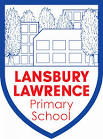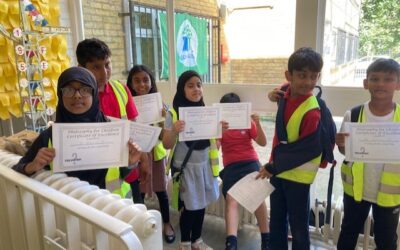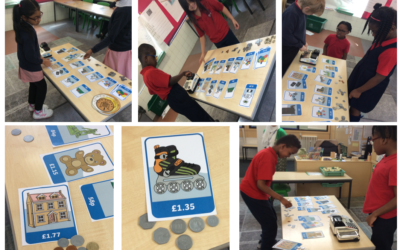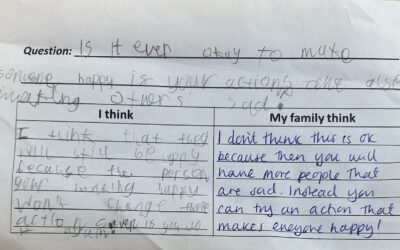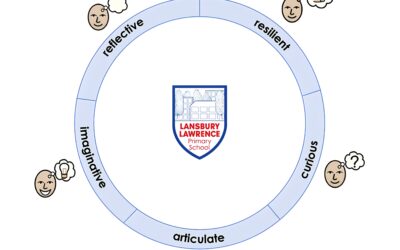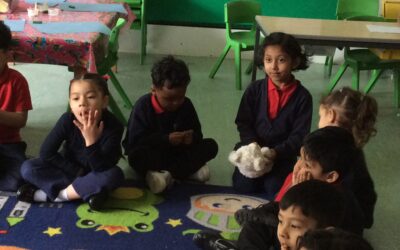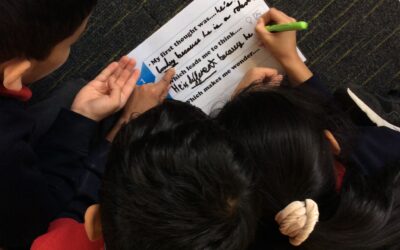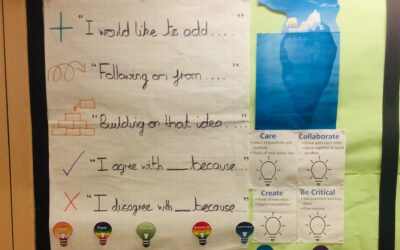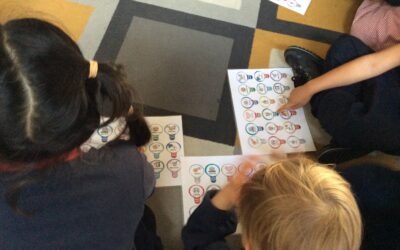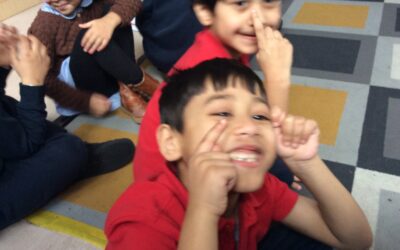Education is the kindling of a flame, not the filling of a vessel.
Philosophy for Children, also referred to as P4C, is a subject that enables children to think with others and for themselves. Children learn and engage with four key skills in P4C which are: caring, collaborative, creative and critical. Within their P4C lessons, children explore big ideas that exist both in education and their day-to-day lives. Children also take part in dialogue and enquiry to help them to think, speak, listen and learn to live together more effectively.
P4C Philosothon
Some of our wonderful P4C ambassadors went to Manorfield Primary today to take part in P4C Philosothon with a few local schools. The children discussed ideas around what makes something a piece of art. They confidently shared their opinions and respected the ideas of...
End of half-term reflection
Another term full of learning, fun and adventure! This term has been incredibly busy and filled with exciting activities. Here's a look at some of the things we've been up to: Our Year 2 students have been diving into the world of math and finance! They've been...
Sharing our discussions
Children have been taking their P4C questions home to continue our discussions. In class, the concepts the children make connections to are varied and interesting; recently, some of them have been friendship, choice, difference and power. The children are enjoying the...
Learning Dispositions in Yinka Class: A case study
Learning dispositions are habits of learning that we foster and encourage in students to help them grow and develop as learners. These habits are embodied in different students in different ways all across the school, but are particularly varied in their presentation...
Learning Dispositions in Yinka Class: A case study
Learning dispositions are habits of learning that we foster and encourage in students to help them grow and develop as learners. These habits are embodied in different students in different ways all across the school, but are particularly varied in their presentation...
Philosophy for Children: Self Expression: I am noticing how I am feeling.
In Reception we are examining our feelings and emotions. We are learning that to be a good learner and good friend we need to be ready to learn, calm and feeling okay. In P4C (Philosophy for Children), we started by talking about the four zones of emotion. The...
P4C in years 3 and 4
During their P4C lessons this week, children in years 3 and 4 shared their thoughts, asked questions and focused on encouraging each other to join in. The questions the students came up were varied and provided great opportunities for discussion: If you notice...
Memories in Hepworth Class
The concept that children in Hepworth class chose to discuss in their recent P4C lesson was memory. The lesson started with a lively starter about whether they'd rather be the world's fastest runner or own the world's fastest car: Uzair: I'd rather be the fastest...
Completing our discussion
Our P4C discussion cycle came to a close this week. After exploring our initial responses to a stimulus, both year one classes chose to discuss the following question: If a person has power, should they try to help everybody? If someone gets hurt or gets into trouble,...
Power in P4C with year 1
Year 1 are enjoying using P4C to develop their skills of thinking, talking and understanding this half term. The enthusiasm, creativity and curiosity they have shown in their philosophy lessons so far has been extremely pleasing to see, and lots of the children's...
